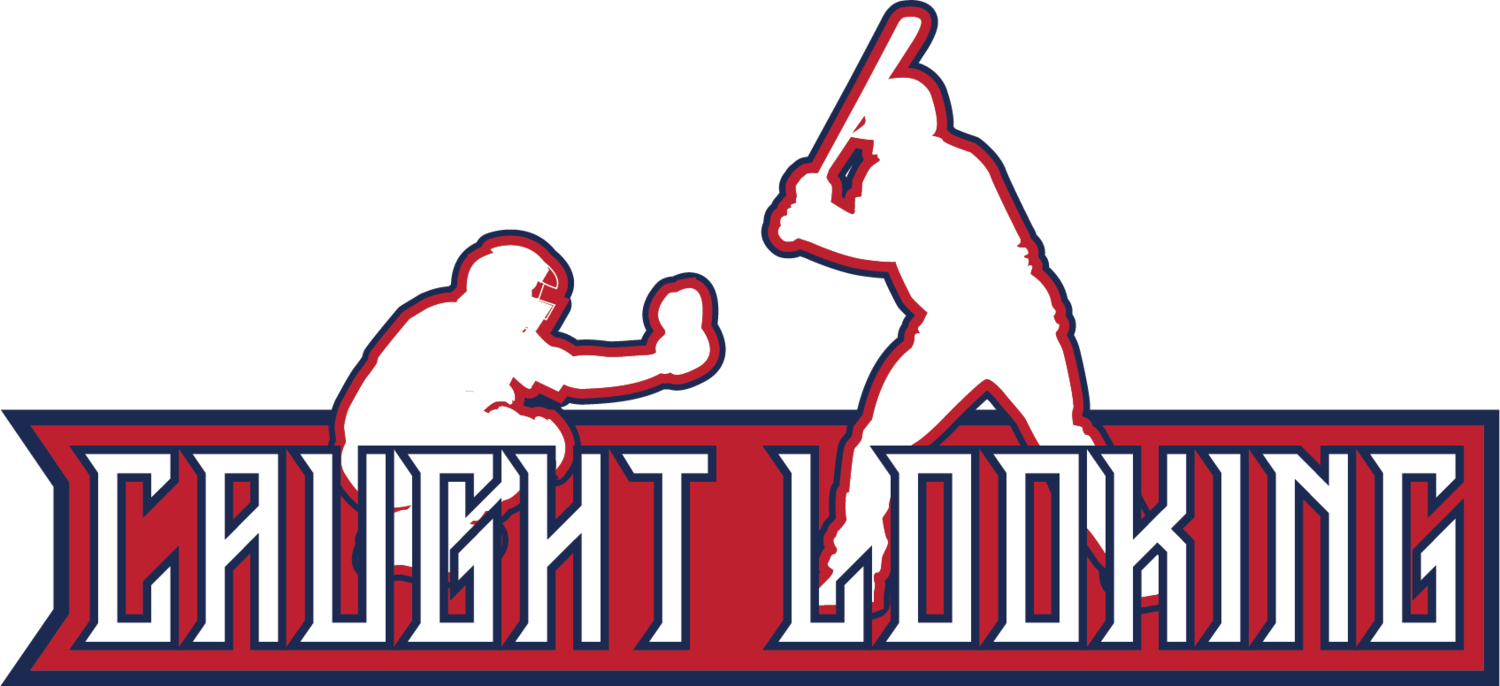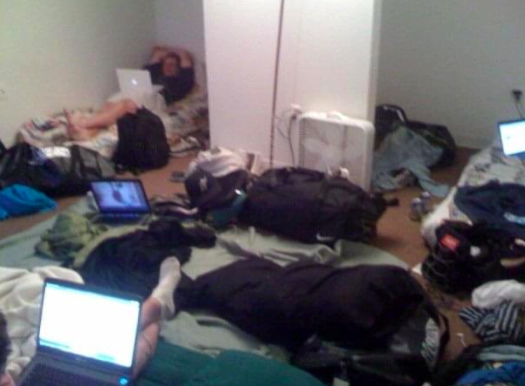Will The MLB go into a lockout?
With the hype of the World Series in full swing, it's easy to forget the potential strike and discontinuation of Major League play that could take place this December.
The MLB's Collective Bargaining Agreement (CBA) is set to expire on December 1st. Unfortunately, with all of the disagreements over issues including rule changes, profit-sharing, and minor league living conditions, it's possible that we could see a strike similar to the one we saw in 1994 (Wikipedia Article on the 1994-95 MLB Strike).
For readers who don't know, The CBA is an agreement between MLB owners and the Players Association. According to MLBplayers.com, the purpose of the CBA "Is to set forth their [the clubs and the league] agreement on certain terms and conditions of employment of all Major League Baseball Players for the duration of this Agreement." This agreement is vital to the MLB and many other major U.S sports because it sets fair and ethical rules for players and teams to abide by. It's meant to be equitable and is a place for players to voice opinions, but historically, owners have dominated negotiations and kept the lion's share of MLB profits. In recent years, players have been much more open to speaking out, and there has been significant pushback and rebellion in the media. If there aren't substantial changes made by December, it would not be surprising to see another strike.
If there is no new CBA by December 1st, per the MLB rules, major league play will stop until it is renewed, and there will be no moves allowed by any club. This will play a significant role this offseason regardless of whether the CBA gets renewed or not. The potential scare of a delayed CBA may force teams to make moves immediately after the World Series ends.
No club can make moves without the CBA in effect, so this may call for an eventful month between the end of the World Series and December 1st. Keep watch because we could see superstars like Carlos Correa, J.D Martinez, Trevor Story, and others either on the move or resign immediately. It will be interesting to see how the deals shape up. On the one hand, we could see massive overpaying of players from clubs to ensure they have them on their team before the expiration date. On the other hand, we could see uncharacteristic low ball signings that players agree to ensure they are getting paid regardless of the outcome of the CBA. Teams could exploit the scare and potentially make sneaky low money, long-term signings on big-time free agents. Signs would point more in this direction, with deals like those signed by players like Scott Kingery, Hunter Dozier, and Evan White indicating the prevailing contract theory. They signed relatively cheap, long-term deals from their major league clubs before they even reached the majors. The clubs thought they were getting a steal of a contract while the players didn't feel ripped off because they were getting paid big money at a young age. It's pretty hard to refuse 24 million dollars at the age of 19. This concept can be extrapolated to any situation where players find themselves with a high level of financial uncertainty.
A significant problem in the current CBA that is looking to be fixed in the upcoming agreement is the ethical problems in the minor leagues. The main problem that all minor leaguers have to face is their compensation. Unfortunately, minor leaguers don't have a union represented in the CBA. Therefore, the minor league players look to their major league counterparts to express their concerns in the new CBA.
Jacob Condra-Bogan, a former minor league pitcher for the Toronto Blue Jays, told the Washington Post, "When I retired, I was one of the best 500 relief pitchers in the world. And I can't even get minimum wage." He went on to say, "This is an entertainment industry where there is money. It's not something small. I'm one of the best human beings in the world at what I do, and I can't make a living off it." According to Harry Marino, executive director of Advocates for Minor Leaguers, most minor leaguers are paid around $8,000 to $14,000 annually.
Another player, Dirk Hayhurst, a former minor leaguer, wrote an article for Bleacher Report. In it, he said, "I lived entirely off of peanut butter and jelly simply because it wouldn't spoil, and it's what I could afford." He also claimed, "In spring training, you were given only $120 per week in meal money, no paycheck. That $120 was gone in three nights at a sit-down restaurant—or you could stretch it by eating fatty fast food all week. Ironic, since there are rules about proper diet and being in shape; they go out the window when you're barely paid enough to eat."
Image of Tom Koehler’s (Retired major league pitcher) first minor league apartment per @TKREFRESH22 on Twitter
Seeing as we are only a month away from the expiration of the CBA, new proposals are being floated to help fix this problem.
In a statement released by the league, they said, "MLB is engaged in a multi-year effort to modernize the minor league system and better assist players as they pursue their dreams of playing in the Major Leagues. In 2021, we increased the salaries for minor league players by 38-72%, depending on level, and significantly reduced travel requirements during the season. In addition, hundreds of millions of dollars worth of improvements to minor league ballparks around the country are already underway, including substantial renovations to player-facing facilities like locker rooms and training rooms."
In addition, there are a few more major controversial issues that are being discussed in the CBA. The first of these are rookie contracts. As players get to the majors, they are subject to team control for 6 seasons (3 on a team controlled deal and 3 salary-arbitration eligible) The lowest base salary for the first year is $660,000. Players are currently upset that their club pretty much has complete control over the pay of their first six years in the majors. This is a problem in baseball compared to the 5-year rookie contracts in football because of the minor leagues. A player is most likely entering their prime in baseball once they get called up to the majors. Therefore, a club can pay the player virtually nothing to play some of their best six years of baseball. Overall, players are upset that teams are essentially able to get a player for six years at such a discount.
Another issue with the CBA is profit-sharing. Currently, players get bonuses for each playoff series they reach due to something called profit-sharing. Profit-sharing gives players extra money in the playoffs based on gate fees. In the playoffs, tickets are worth substantially more money than in the regular season, and therefore the MLB makes more money. Due to this increase in cash, the MLB pays each player on the playoff roster more money, but players feel they aren't getting paid fairly. This is because players feel like they deserve more of the MLB's profits in the postseason due to the television contracts. Players are aware that the MLB makes significantly more money from TV deals than stadium tickets, and they feel they should be let into those profits.
Also, the MLB proposal includes a lower luxury tax and a higher salary floor.
A strike is becoming increasingly more likely as we get closer to the December 1st deadline. According to Ronald Blum of the Associated Press, "Negotiations have been taking place since last spring, and each side thinks the other has not made proposals that will lead toward an agreement replacing the five-year contract that expires at 11:59 p.m. EST on Dec. 1."
As of now, we are seeing similar trends to the months before the 1994-95 strikes with constant outcry by players. Even players who don't engage in controversy have voiced their opinion on this topic. According to ESPN, as of February, "Trout said Monday that he speaks with MLBPA executive director Tony Clark' probably once a day' as the union and MLB approach a critical juncture regarding negotiations for a new CBA."
Players and owners will do everything they can to avoid a stoppage, but there are certain hills each side is willing to die on. Rob Manfred has mentioned that his first priority is to prevent a lockout. Still, even without a strike, the possibility of one may force teams and players to make impulsive contract decisions. Stay tuned, because even after the World Series is over there will be plenty of fireworks going off in the baseball world.

